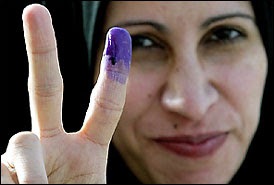Delta4Embassy
Gold Member
Could make it more academic sounding but that's it in a nutshell. Why is war bad?
What always comes to mind when I think of war is D-Day and US Marines coming ashore on Omaha beach only to die seconds later. Dying to someone with a personal grudge is one thing. The heat of passion thing. At least that's a personal kind of killing. Killing in war it's impersonal. You don't have a particular problem with the enemy, they're simply an obstacle to overcome by killing them. That impersonal killing where everyone who dies was an individual with hopes and ambitions, loved and was loved dies in a split second to someone who didn't hate them or especially want them dead is the most horrible thing I can imagine, and I can think real dark.
What always comes to mind when I think of war is D-Day and US Marines coming ashore on Omaha beach only to die seconds later. Dying to someone with a personal grudge is one thing. The heat of passion thing. At least that's a personal kind of killing. Killing in war it's impersonal. You don't have a particular problem with the enemy, they're simply an obstacle to overcome by killing them. That impersonal killing where everyone who dies was an individual with hopes and ambitions, loved and was loved dies in a split second to someone who didn't hate them or especially want them dead is the most horrible thing I can imagine, and I can think real dark.



